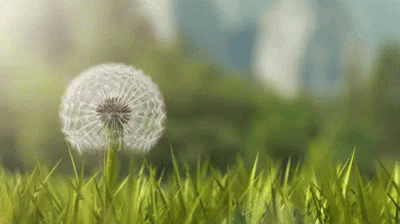On the knife's edge of hope and despair
sometimes surrendering to helplessness in the face of a loved one's struggles is the only way to help. and it doesn't mean giving up — it can be an act of love
Friends, Just a heads up that this post deals with suicide, mental illness, addiction, and related themes.
“I called the suicide hotline and they put me on hold. They put me on fucking hold.”
My friend let out a guttural, wounded laugh over the phone, the kind of humor that emerges from the darkest moments of life and fuels the best stand-up comedy routines. I hesitated but then forced myself to join him. Laughter was all we had for the absurdity of being put on hold on a suicide hotline.
He was reacting to an earlier draft I’d written, a piece titled “Take your meds for heaven’s sake.” It was meant to be a plea — an open letter to those stumbling through the dark caves of mental illness or addiction: Take the meds. Go to rehab. Follow the doctor’s orders. When I asked my friend to read it, I didn’t think about how it might dredge up echoes of battles from his own past.
“Do you really think your letter’s going to change anyone’s behavior?” he asked, his voice cutting through me like a blade.
“All it takes is one person,” I shot back. “The right person at the right moment.”
“Would Spencer have taken his meds if he’d read it?”
There it was — my brother’s name dropped into the conversation like a hydrogen bomb. My older brother Spencer was bipolar and refused treatment. Nine winters ago, Spencer had a psychotic episode and vanished into the frigid mountains of southern Oregon. A month later, his body was found. It was one of the most devastating and defining moments of my life, and I wrote about it in the draft my friend read. The question wasn’t unfair, but it still felt like a sucker punch.
“Hell no.” I swallowed my pride. “But maybe someone else would.”
A dense quiet settled over us. I knew he was right. I let out an exasperated breath into the phone.
“That’s the thing about these… these situations,” I stammered. “You’re just so… helpless.”
His tone softened. “Then write about that, Jeff.”
So here I am.
Helplessness. The gut-wrenching, bone-deep anguish of watching someone you love spiral out of control. You’re a passenger on their crazy train of mental illness, addiction, or whatever it might be, and all you can do is brace yourself for impact. The solution is often right there, just a few inches within their grasp. If they would only take the meds, check into rehab, follow the treatment plan — then maybe, just maybe, they could claw their way back to the surface and everything would be ok. But you can’t make them reach out. You can’t force their hand. Their fate teeters on the edge of their decisions, and the line between recovery and tragedy is razor-thin. It’s not just their life that hangs in the balance, but the lives of everyone caught in the blast radius of their choices, too.
Because sometimes it really is that simple. Take the treatment, live. Reject it, die. And you, as the bystander, are left on a knife’s edge of hope and despair, yearning for a breakthrough that may never come. All you can do is show up, encourage, support, love, and — at some point — let go.
But is this true? Yes, I believe it is. Sometimes you have to surrender to your own helplessness, let go of any godlike notion that you can fix things, and admit that you have zero control and are just as small and fragile as they are. And then you pray. Pray with every fiber of your being that they’ll choose life. That they’ll find their way back. You make a wish and blow a dandelion into the wind. You cannot fix this.
Some might argue that the distinction between total abdication and playing God is a false binary, and that’s fair. You can still support someone without trying to control the outcome. But the deeper truth is learning to accept our limitations as loved ones, and finding agency in the nuances of acceptance. Surrendering to helplessness isn’t the same as giving up. Abdication is dropping responsibility; surrendering is embracing it, even when it feels passive.
I remember the day I surrendered to helplessness with Spencer. He’d been arrested and detained under the Baker Act — another 72 hours of stability that dissolved the minute he was released. I couldn’t understand why that wasn’t enough of a wake-up call for him to take his medication. He refused treatment. Again. And then it hit me like a thunderbolt: after years of trying, there was nothing, absolutely nothing, I could do to get him to seek treatment and take his medication. Jeff the good brother, Jeff the fixer, was helpless.
I remember my stomach feeling like it had dropped from a skyscraper. And then… clarity. I realized I could only be his brother, not his savior. So I let go. I surrendered my impulse to persuade him into treatment. And oddly enough, a beautiful friendship with my brother blossomed from that acceptance. Spencer and I forged a new bond built on acceptance, love, and boundaries. It was fleeting, but it was real.
Eventually, Spencer’s illness worsened. Several years later, when he went missing in the mountains and his body was found, my worst fears were realized. He was gone.
Was I wrong to surrender to helplessness? Could I have done more? Nearly a decade later, these questions still haunt me, like ghosts whispering in the dark corners of my mind. You should’ve tried harder. And then comes anger at my brother, burning hot and bright: Why couldn’t you just take your medication?
Deep down, I know I did all I could. I loved him as a brother. I set boundaries. I supported him as best I could. And I lost him anyway. I still have to remind myself that my helplessness was real — that my surrender wasn’t giving up on Spencer but a conscious and deliberate act of brotherhood. Now, I can almost see wonder in that helplessness, like looking up at the stars and accepting that the universe is beyond my comprehension. But was my surrendering genuine or just a convenient way to cope? I know the answer, but the ghosts still whisper.
Today, I find myself walking beside friends facing their own battles with helplessness. Last year, a family friend’s wife fell into a silent, terrifying void. She stopped talking. Stopped eating. Stayed in bed all day. Involuntary commitments, endless weeks of treatment — but when she got home, she refused to take her medication. Her husband was desperate. Juggling a full-time job, raising four children, and caring for her all at once. He begged her, pleaded with her, but it didn’t matter. He felt powerless.
She finally chose to get help. And today, the family is intact, hanging on by a thread but still holding together. She chose life. And in that choice, I see the same thin red line that divided my brother’s fate from hers. The same razor’s edge that separates life and death, chaos and calm, connection and loss. A Rubicon of treatment only she could cross.
There’s something mystical about these thin red lines. They feel so arbitrary and lonely. Go one way, live. Go another, risk death — and the fallout touches everyone around you. Only the afflicted can decide. Everyone around them feels helpless and afraid, and yet these bystanders face their own red lines: When do you fight like hell for your loved one, and when do you surrender to your helplessness? Where is the threshold separating giving up and surrender, supporting versus enabling?
We all have moments when those who love us can only watch as we walk the knife’s edge alone. And when we’re the witnesses, there are times when all we can do is love, support, and let go. These lines are razor-thin, and we all hover on the edge of fate as we navigate these situations.
I think about that suicide hotline on hold, the elevator music filling the void as someone waits to talk about ending it all. I whisper a prayer for those wavering on the knife’s edge, for the thin red lines, for those who make it and those who don’t. And for the loved ones who surrender to the mystery of their powerlessness and, despite it all, still find grace.
Related essays:






Prayers indeed for those who suffer. Thanks Jeff.
Gut-wrenching, Jeff. The distinction of surrendering to helplessness not being the same as giving up is powerful and essential. When the ghosts whisper - thank them and return to what you know deep down, that you did your best.
I might be THE one person you help, as I have a loved one who is somewhere in the middle innings contending with bipolar disease.
Thank you for finding it within yourself to write this.